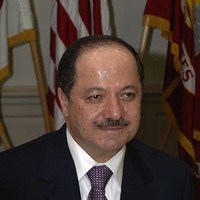The withdrawal of Kurdish militants from Turkey across the border into Iraq is highlighting the role of Iraq’s Kurdistan Regional Government (KRG) in regional geopolitics ahead of KRG elections planned for September. In an email interview, Michael M. Gunter, a professor of political science at Tennessee Technological University who focuses on Kurdish issues, discussed the state of internal Kurdish politics.
WPR: What is the political landscape in Iraqi Kurdistan ahead of the September elections?
Michael M. Gunter: To begin with, I would not assume that the September elections will be held as scheduled. These elections might again be postponed, as they have been in the past because of crises—for instance, a military confrontation with Baghdad—and the fact that those in power are not ready to risk losing it. With Iraqi President Jalal Talabani’s incapacitating illness and apparent retirement from active politics, KRG President Massoud Barzani’s Kurdistan Democratic Party (KDP) has emerged as the leading party. It is unclear whether Talabani’s Patriotic Union of Kurdistan (PUK) will be able to launch a credible campaign, as it had already been in decline before Talabani’s illness and now does not have a true leader. On the other hand, it is possible that the PUK could ally with the Gorran, a newly established third party, and thus mount a credible campaign.

